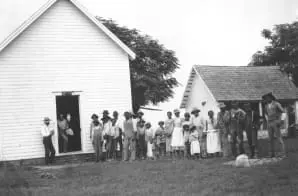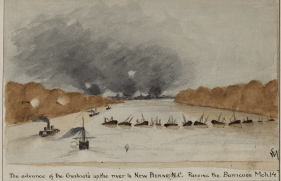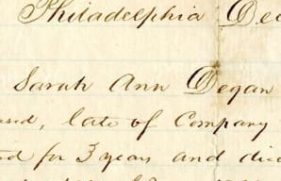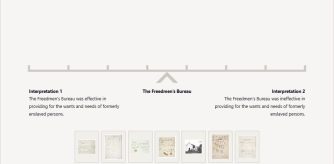President Lincoln’s issuance of the Emancipation Proclamation, the defeat of the Confederate Army, and the passage of the 13th Amendment resulted in the freeing of approximately four million African Americans.
Upon being freed, the formerly enslaved persons faced many challenges. Congress established the Bureau of Refugees, Freedmen, and Abandoned Lands — better known as the Freedmen’s Bureau —within the War Department on March 3, 1865. The Freedmen’s Bureau assisted formerly enslaved persons by legalizing marriages, supplying necessities such as food and clothing, promoting education, witnessing labor contracts between the freedmen and plantation owners or other employers, and settling freedmen on abandoned or confiscated land. This image shows food being distributed in Alabama.





